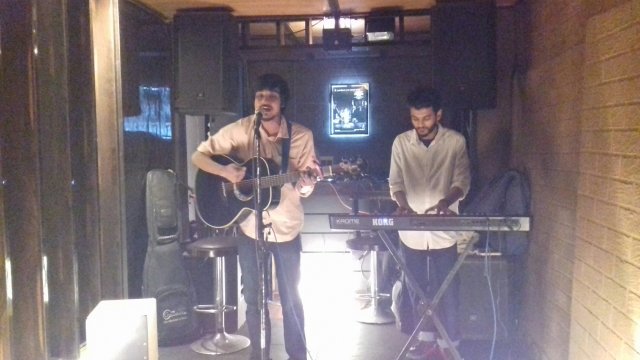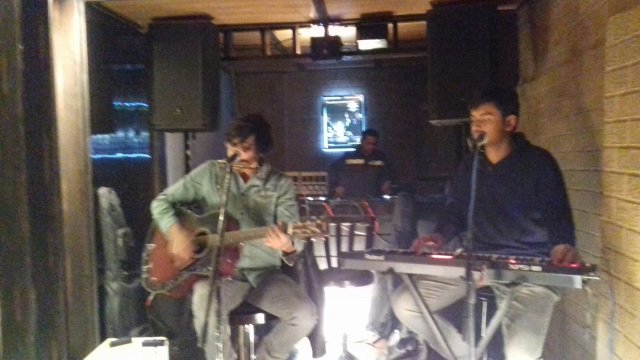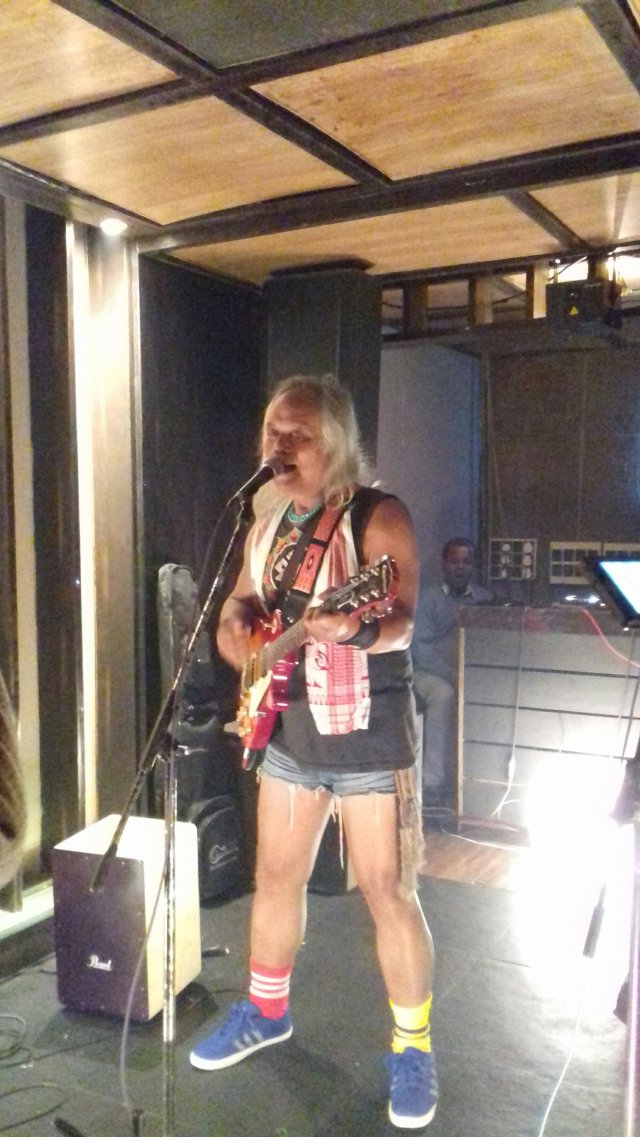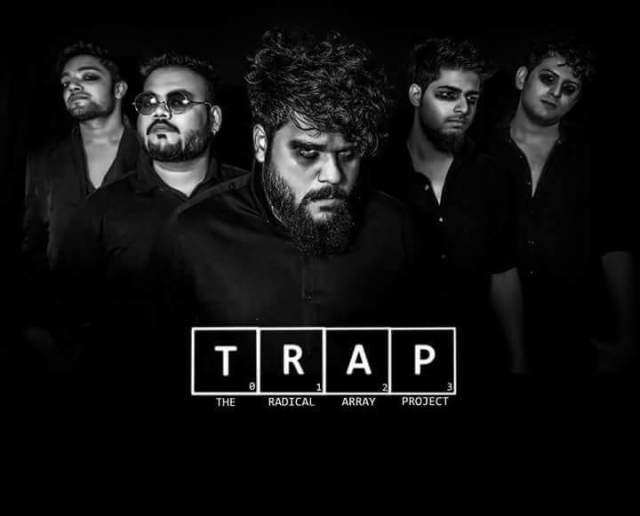” A song is to me what life gives.”
Last night at the Vault, five original composers and India’s very own Bob Dylan came together to pay a tribute, and to contribute to the independent music scene of the city. What came around as an upshot to this was the spawning of the genesis of songwriting.
Tathagata Bhowmik, the former songwriter of Do’s and Don’t’s, was the first one to perform. His compositions were that of fervour, where in most he spoke about the cherishing dwelling of love and its consistent inclination to drop out of sight. Tathagata’s song Clouds White Clouds spoke about the kind of affection which dematerializes itself after a point of time, and soon it cease to exist. Mellifluent with his compositions, they were the perfect blend between dejection and tribulation.

The next act by Ryhaan was nothing less than a pleasant merry making. The youngest performer in the house interfused Rock with Pop to keep the audience up on their toes- didn’t matter if anyone in the house was heavily stewed. His offhand improvisation brought the ambience off-the-cuff. His song which he casually announced to be the C Song might sound to most like a hasty headlong rush to notes, yet the boy was confident and the song sailed clear.

Amartya Ray came up with something absolutely different to offer. “When you add music to your poem it becomes a song.” His songs which deal with the impulsive temperament of the young mind, which often goes through an overflow of distinct emotions- sometimes in love, sometimes wandering beyond the horizon, sometimes only a little sad- probably for the first time in the evening brought the audience together. His song Little Man which is about the promised who still awaits for the day to turn and the dawn to arrive is possibly one of his most illustrious compositions. Amartya later paid a tribute to Leornard Cohen, as he was accompanied by Durjoy to perform the poet’s song Suzanne.

As Lou Majaw had told earlier that evening, “A song is to me what life gives.” Watching him perform was like being extremely young again. The man who is known to have carried on Bob Dylan’s legacy in India supports nothing more than originality in an artist’s performance. For him no one can possibly have time for hatred, ill will and abhorrence if all would only be with music, listen to it, play it, do anything with it. He shared a little bit of himself with us, as he went on to sing for the rest of the night:
“When you’re sad and when you’re lonely
And you haven’t got a friend
Just remember that death is not the end
When you’re standing at the crossroads
That you cannot comprehend
Just remember that death is not the end”.

Last night at the vault, there was a song, there was a thought, there was poetry. Last night at the vault people were happy.










